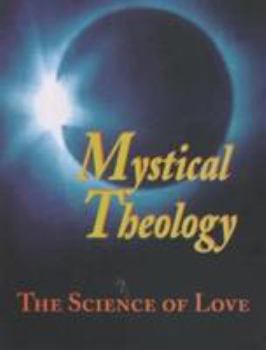Mystical Theology: The Science of Love
Select Format
Select Condition 
Book Overview
A Jesuit who lived and taught for more than 50 years in Japan shows how Christian theology today must dialogue with modern science and with Eastern religions. Mystical Theology provides a working model of such a dialogue, as Johnston engages Einstein's theories as well as Zen Buddhism. It becomes clear how the science of love as mysticism is called, cannot be an esoteric discipline, for monks and nuns alone. In Johnston's writing the mystical aspects...
Format:Paperback
Language:English
ISBN:1570751757
ISBN13:9781570751752
Release Date:March 1998
Publisher:Orbis Books
Length:306 Pages
Weight:0.50 lbs.
Dimensions:0.7" x 6.0" x 9.3"
Related Subjects
Biographical Biographies Biographies & History Biography & History Christian Books & Bibles Christian Living Devotionals Leaders & Notable People Mysticism New Age Other Eastern Religions & Sacred Texts Other Religions, Practices & Sacred Texts Religion Religion & Spirituality Religious Spirituality TheologyCustomer Reviews
4 ratings
Mystical Theology
Published by Thriftbooks.com User , 15 years ago
This is an excellent and comprehensive overview of the subject of mystical theology. It is also an excellent introduction to the relationship between Christian mysticism and the mysticism of the world religions, especially those of the East.
A good book on mystical theology
Published by Thriftbooks.com User , 17 years ago
Since Vatican II and the 1960's, there has been a massively renewed interest in mysticism and interior forms of spirituality. William Johnston, a Jesuit missionary living in Japan, has extensive knowledge both of Western spirituality and mysticism and also through his experiences in Japan, of Eastern spirituality and mysticism, especially Zen Buddhism. Johnston is able to expound the insights of both traditions in a non-sectarian way on the basis of love; Christian agape and Buddhist compassion. He feels both traditions can enrich each other, provided both respect their appropriate boundaries. I am inclined to agree, being a student both of Christian spirituality and also Eastern religion as well. There is no need for the two traditions to try and 'convert' each other, rather, a dialogue will be more profitable in the longer term.
Tying Johnston's Mystical Theology to Pascal, Weil, St John
Published by Thriftbooks.com User , 23 years ago
I studied Pascal's Pensees at Notre Dame in 1989, and my life changed. A few years later I discovered Simone Weil's works at Emory University. A few years ago I was given Johnston's book, and am still working thru it. I'm a layman, not a genius, and for me the things in this book, tied to Pascal, Weil, and the Gospel of John, surely make a lot of sense. I'd like nothing more than to study this book at a seminar taught by William Johnston. For the layman who is seeking to make sense of this world, while developing a deeper relationship with God, this is the book to read.
Modern, post Vatican II explanation of East-West mysticism.
Published by Thriftbooks.com User , 25 years ago
Johnston's Book "Mystical Theology" explains in a succinct and readable way the history of Western Christian mysticism and correlates it with Eastern mysticism and modern Western psychological understandings. It is well-written and answers questions that the average student of mysticism would understand in a coherent way. It is good for spiritual directors and pastoral leaders who are trying to understand the spiritual life of those entrusted to their care. It is NOT a book for beginners. It will be best understood by those who have some working knowledge of Christian, but especially Catholic Western or Eastern Mysticism. A knowledge of the works of St. John of the Cross or Teresa of Avila is most helpful.Johnston's primary contribution to this field is his updating the understandings of centuries and placing them in a modern context. For example, he takes the three traditional ways of spiritual growth, purgative, illuminative and unitive ways and correlates his experience of Eastern mysticism, the call to non-violence, and modern psychology with them. The language is clear, the meanings precise, and the index is thorough. You can use this book as a basic research tool for mysticism or contemplation. I wished I had had this book before I wrote a published article last year. It would have formed a backbone to my article that other resources do not have.Johnston's book is broad-based and has great depth. It could easily become the "Bible" and the "dictionary, if not encyclopedia" in its field. Its only weakness (and probably because it would have made it overly long)is that it does not trace the history of Western or Eastern Christian mysticism in great depth. However, its theological underpinnings are very strong. I highly reccommend this book not only to scholars but to all those seeking a greater understanding of mystical theology as well as those guiding our contemporary mystics.





